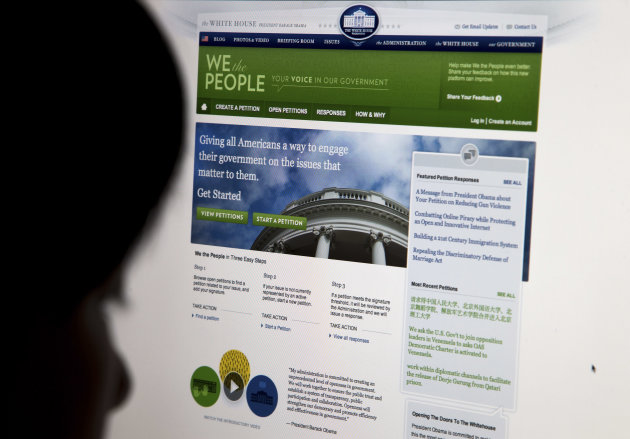Petition to White House to Deport Zhu Lin Poisoning Suspect
by Allison Pan on Saturday, May 11, 2013
by Allison Pan on Saturday, May 11, 2013

From NetEase:
30,000 People Signed Petition Requesting White House Intervention on Zhu Ling’s Case
Not long ago, [the news on] Fudan University graduate student Huang Yang being poisoned to death by a classmate shocked many people, the incident reminding people of the 1995 Tsinghua University female student Zhu Ling’s thallium poisoning case. Unlike the Fudan poisoning case, just who is the perpetrator in Zhu Ling’s case remains a riddle to this day.

On May 3, a petition regarding Zhu Ling’s case appeared on the White House’s official website. At the moment, already 30,000 people have signed in participation. According to the related regulations in the U.S., once the number of signatures reaches 100,000 people, the White House must provide a response. The person who initiated the petition wrote this on the White House’s website: “In 1995, Zhu Ling as a Tsinghua University Student was found out to be purposely poisoned twice lethal in chemical: Thallium, which leads to her permanent paralysis. It was indicated that Sun, her roommate, had the motive, and access to the deadly chemical … Resources also show that she changed her name and entered USA by marriage fraud. To protect the safety of our citizen, we petite that the government investigate and deport her.”
Looking at the information disclosed on the White House website, the petition initiator is shown as Y.Z., residing in Miami, Florida of the U.S., his/her basic information essentially concealed. Y.Z. represents the petition initiator’s initials. The Obama Administration launched the completely new “We the People” online petitioning system on the White House’s website in 2011, where one needs only register on the White House website with their email address in order to post a petition on the White House’s website. According to a new January 2013 regulation, if a petition obtains 150 signatures in support within 30 days, it will receive search engine support [can be searched for through the search engine] on the White House’s website. If it can collect 100,000 signatures in support within 30 days, then it can get a response from the White House.

At present, this letter of petition has already obtained 30,000 signatures in support. Among the signatories, there are more than a few who users who are Chinese. According to reports, the suspect Sun accused in the White House website petition is a [former] Tsinghua university student, and Zhu Ling’s roommate Sun Wei. Previously there have been reports claiming that the Public Security Bureau already cleared Sun Wei of suspicion in 1998. Hong Kong’sSouth China Morning Post recently reported victim Zhu Ling’s current condition, stating that her current weight is nearly 100 kg, paralyzed in bed, suffers from diabetes, almost completely blind, and her IQ is equivalent to a 6-year-old child.

